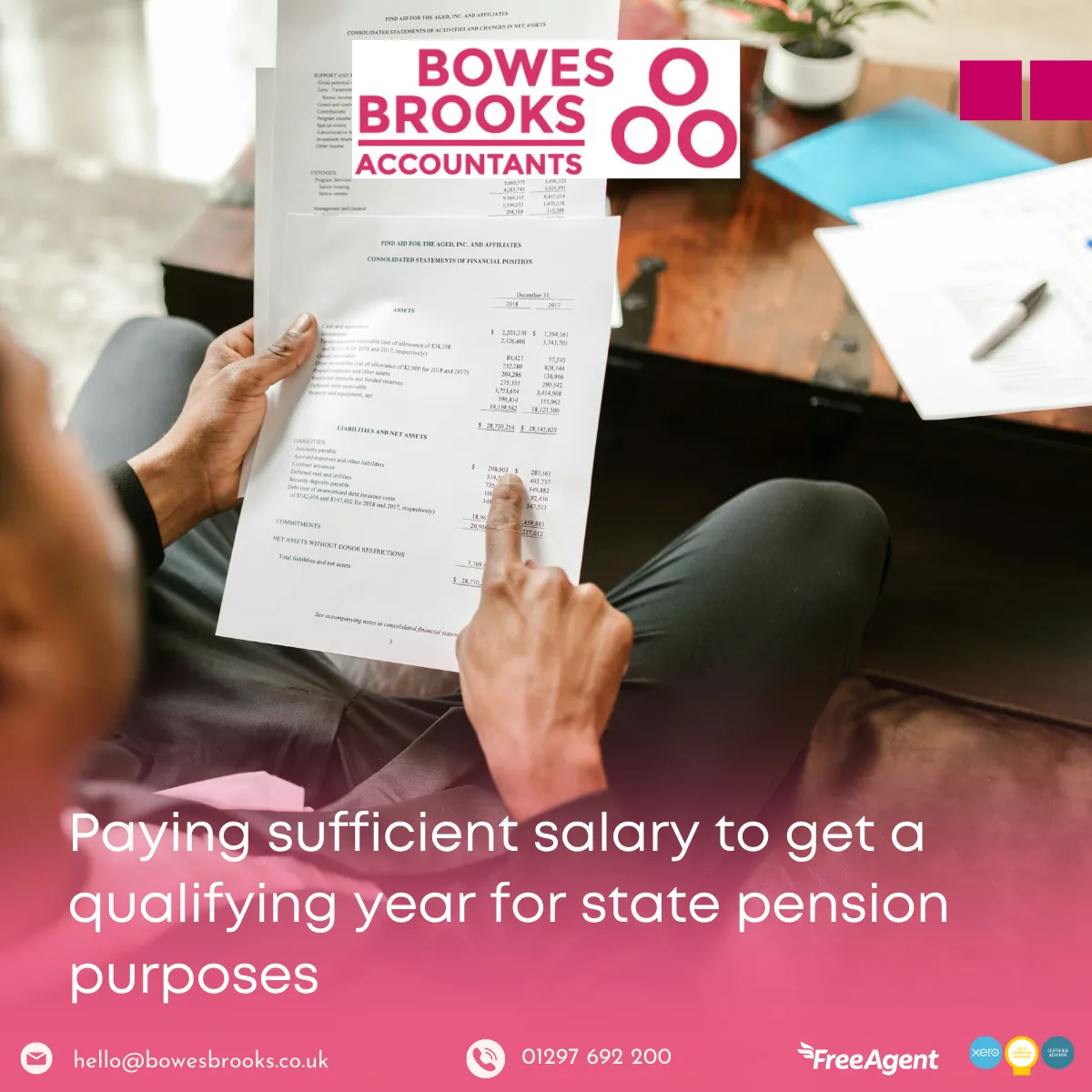
Paying sufficient salary to get a qualifying year for state pension purposes
A common strategy in personal or family companies is to pay a small salary and extract further profits as dividends. Salary, unlike dividends, helps secure a qualifying year for state pension. To receive the full pension, you need 35 qualifying years (at least 10 years for a reduced pension).
A year qualifies if earnings subject to NICs are at least 52 × the lower earnings limit. For 2025/26, the limit is £125 per week, so a salary/bonus of at least £6,500 is required.
Earnings between £6,500 and £12,570 (primary threshold) give a qualifying year at a 0% NIC rate, meaning no employee NICs are payable. However, employers must pay secondary NICs once pay exceeds £5,000. On a salary of £6,500, this results in a £225 NIC bill (15% of £1,500).
Personal companies: No employment allowance if the sole employee is a director, so secondary NICs apply.
Family companies: The employment allowance can remove this cost.
Although £6,500 secures a qualifying year, paying £12,570 is usually more tax efficient if the full personal allowance is available, as the corporation tax deduction outweighs the NIC bill.
